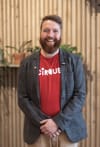Assessing the impact of Youth and Social Circus training through circus and performance practice
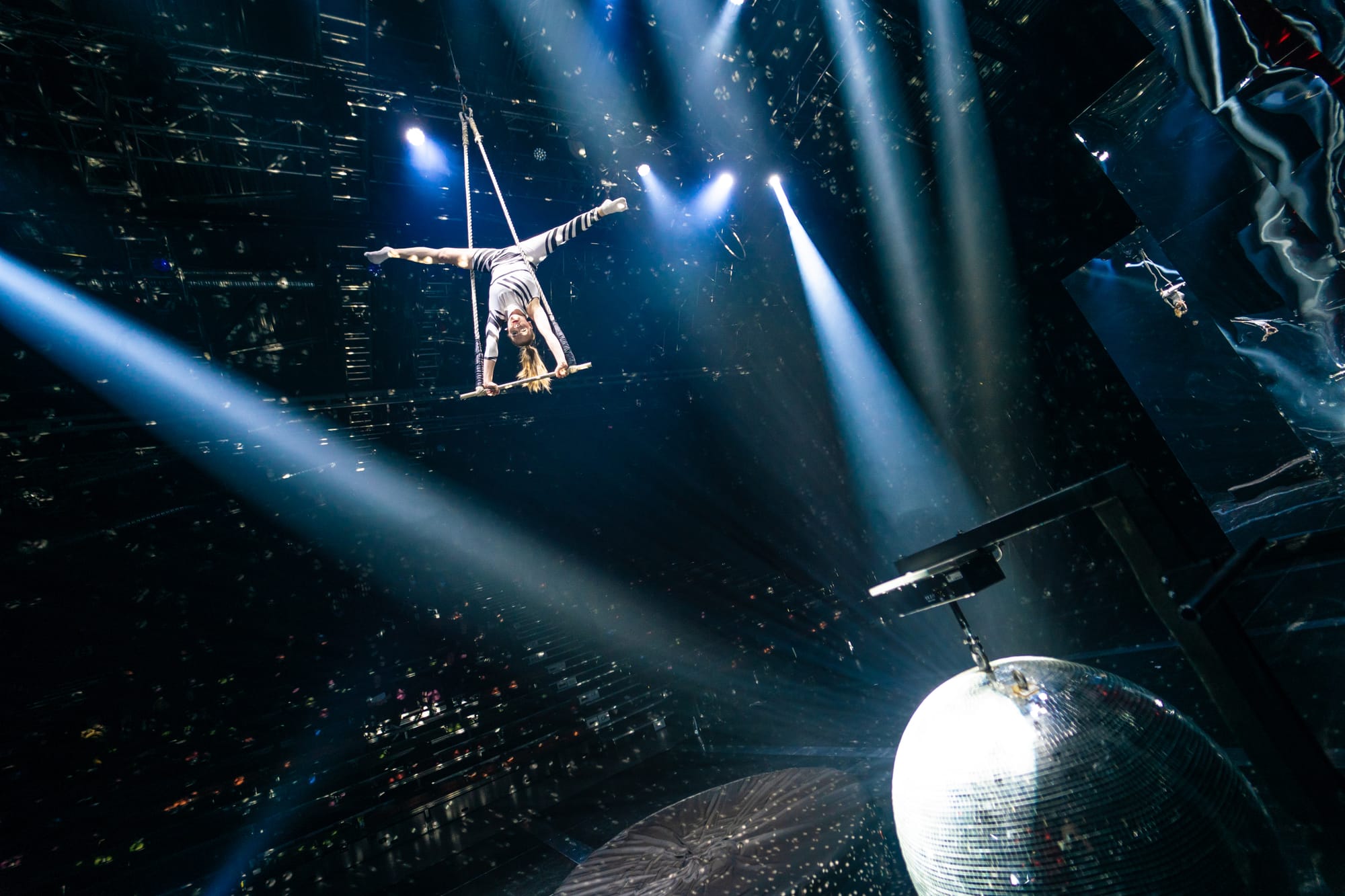
by Ilaria Bessone, Heta Mulari, Ian R. Walsh
In response to a growing need for youth and social circus trainers’ work to be recognised and standardised the Circus Transformation Programme (CTF) was established. This was the first ever European training programme for social circus trainers and there have been eight iterations of CTF since its development in 2011 with an accompanying Guidebook for Social Circus Trainers. In 2022 we met to form an international research team coming from Ireland, Italy and Finland as part of the EU-funded project CTF Advanced. Our task was to evaluate the content and impact this programme has had on participants, trainers and the sector. However, we decided that impact was not only to be assessed using standard methods of survey and focus groups but also through circus and performance practice. We found these performing arts-based methods led to a deeper engagement by participants that could serve as a model for future circus impact studies.
CTF Advanced was a two-year (2022–2024) project funded by Erasmus + that evaluated the content and impact of CTFs 4–6 and updated the guidebook with particular emphasis on the input from social sector bodies in the different countries. Our work on CTF Advanced was informed by our different research backgrounds. Therefore, one of the key underpinnings of the research was the diversity of skills, backgrounds, and views it relied on; these included the fields of youth and social circus, social research, cultural studies, and theatre studies. This cross-disciplinary combination provided for us a fertile terrain for exchanging insightful ideas and creative methods.
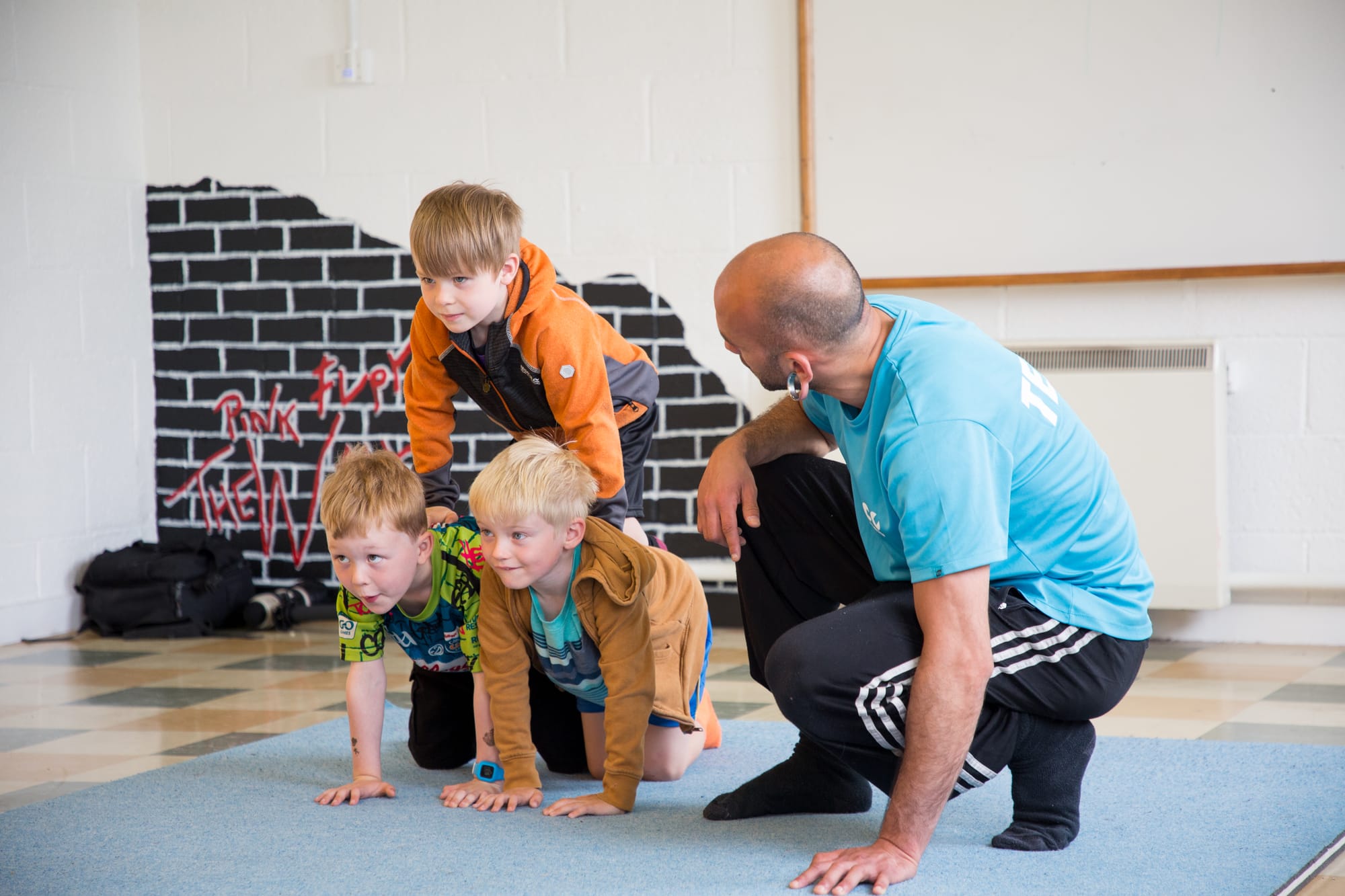
Our research objectives were: to evaluate participants’ experience of CTFs 4–6 (i.e., the programme now and its impact over the past few years); to evaluate trainers’ experience of CTFs 4–6 (i.e., challenges, benefits and impacts of teaching the programme), to evaluate stakeholders’ experience of CTFs 4–6 (i.e., identifying challenges and future needs of social circus and the youth sector in general).
We started the evaluation process by analysing the weekly evaluations, collected from participants during the CTF training cycles 4–6 (organized in 2018–2022). However, we soon noticed that this data was insufficient to answer the key research questions concerning the participants’ and trainers’ experiences of CTF, or to investigate the short and long term impact of CTF for participants, trainers, circus schools, and the sector. As a consequence, we chose to design a mixed method approach, including sending surveys out to participants and trainers; organising focus groups and embodied research workshops with stakeholders; and working via tableaux and circus practice with a selection of participants from CTFs 4–6.
Art-based methods represent a particularly interesting aspect of this research. They provide ways of accessing and representing a wider range of perspectives than traditional methods, via experiential and alternative ways of knowing. Art may enable researchers to generate multiple meanings and a more holistic view of reality by posing new questions and opening up new channels of communication with every participant in the research process. In the focus groups, images were used to convey a clearer idea of the object of study, stimulate reflection and discussion, and unveil ambiguities, conflictual interpretations, and subjective meanings.
Moreover, performing arts (theatre, dance, circus) became tools in our research both for generating meaning and data, and for representing the research outcomes. We focused on perception, spatial relations, bodies, and movement and drew on embodiment as an opportunity to grasp deeper meaning through sensory experiences and emotional responses. This method enhanced understanding as well as fostered reflexivity and emotional engagement for both participants and researchers.
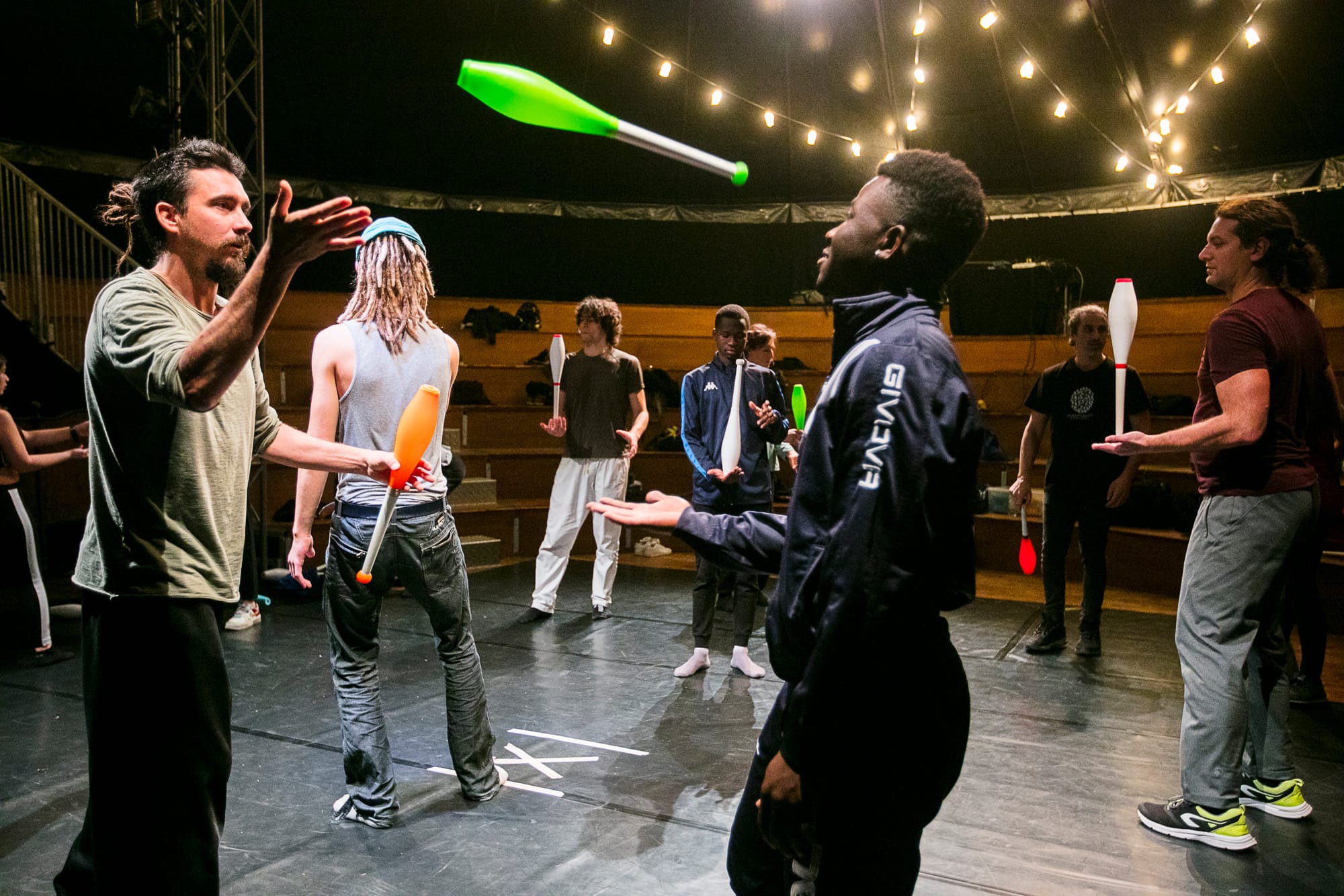
In this way, data could be gathered in a way that challenges what academic Christine Mayor (2020) calls a quantitative, deterministic and post-positivist approach. Participants found this approach to be a livelier mode of enquiry than that of a typical focus group. Using art, movement and embodied expression helped to overcome language barriers (many participants did not have English as their first language) and allowed for some participants to engage in the process artistically and in an embodied way which was more meaningful for them. One participant in the circus workshop emphasized that this approach would be useful, not only in research, but in self-evaluation during the CTF programme as well: “I feel it would be a good way to tie everything together through movement. It would bring more layers to it.”
At the end of the project, we created recommendations resulting from the impact study for the future development of CTF. All of the recommendations were drawn from analysing the research data created in collaboration with research participants and partners in a dialogical, embodied manner. The recommendations cover a wide variety of perspectives ranging from rethinking diversity, accessibility, vulnerability, and relaxed and brave spaces, to developing evaluation and certification, as well as facilitating co-planning and open dialogue between trainers, participants, and stakeholders at all stages of the training programme.
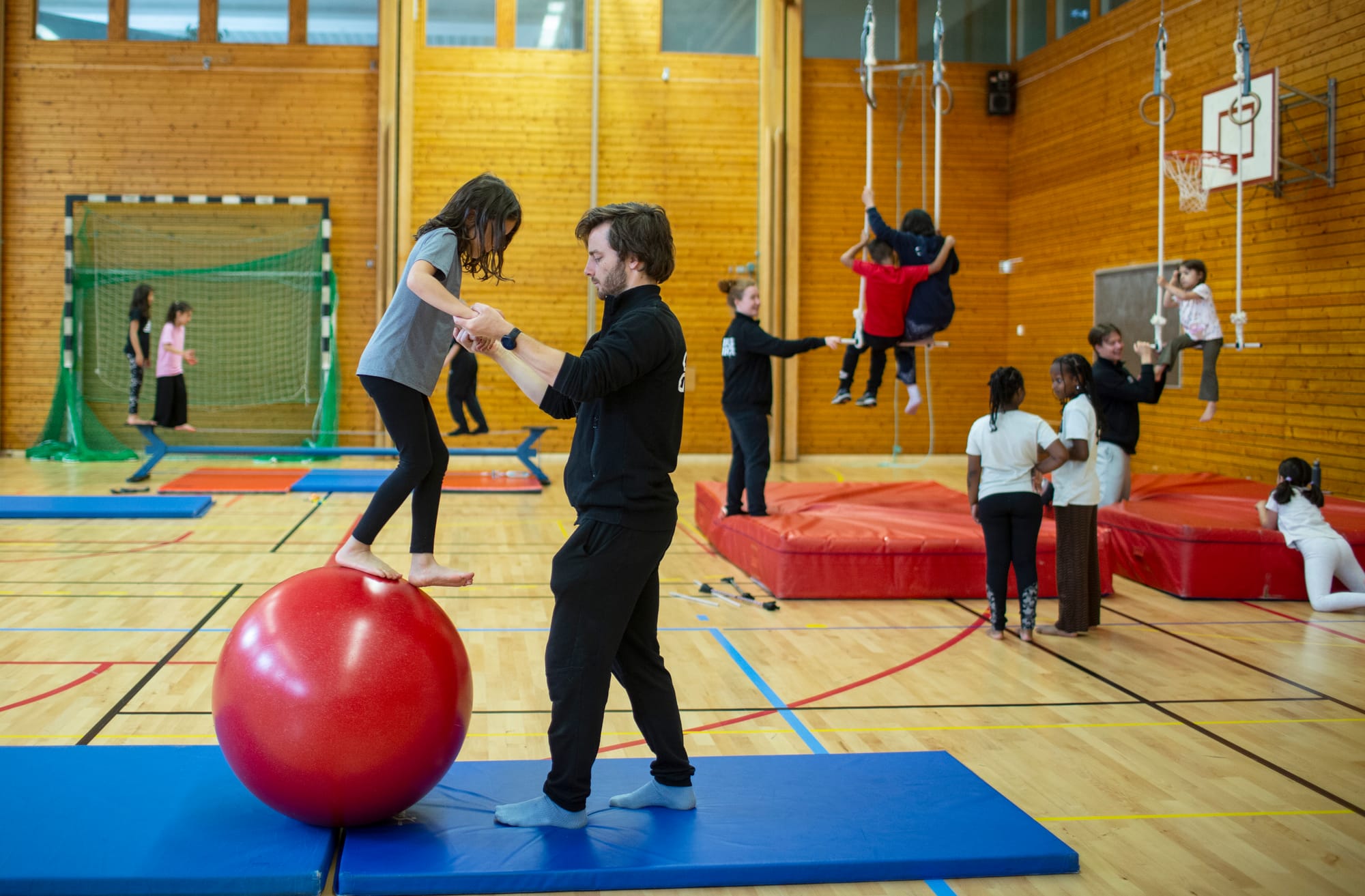
The performing arts methods of learning and evaluation have a significant role in the recommendations. We encourage CTF trainers to ensure that, throughout the programme, there are more opportunities for embodied learning by using pedagogical approaches that involve circus and performance practices to aid teaching. We recommend CTF to develop diverse methods of learning, evaluation, and self-evaluation (e.g., embodied and artistic methods). Circus methods are particularly recommended as they provide a familiar language to most participants in the training programme. The methods must best reflect the skills, needs, and preferences of the participants, allowing them to go ‘deep’ in an ‘easier’ way.
Further, we encourage an awareness of the impact of using English as the dominant language in the training programme and reconsidering how language barriers can affect not only dialogue, but how people connect and share. According to our experiences from the research workshops, the performing arts methods aided both with challenging the dominance of verbal expression and overcoming language barriers of the international participants. As one circus workshop participant put it, ‘because we are not mostly like thinkers in that way, like we are either circus teachers or practitioners, so we work a lot with our bodies anyways and […] it gives solutions for people using language that is not their first language’.
You can find the full research report from the CTF Advanced Project here.
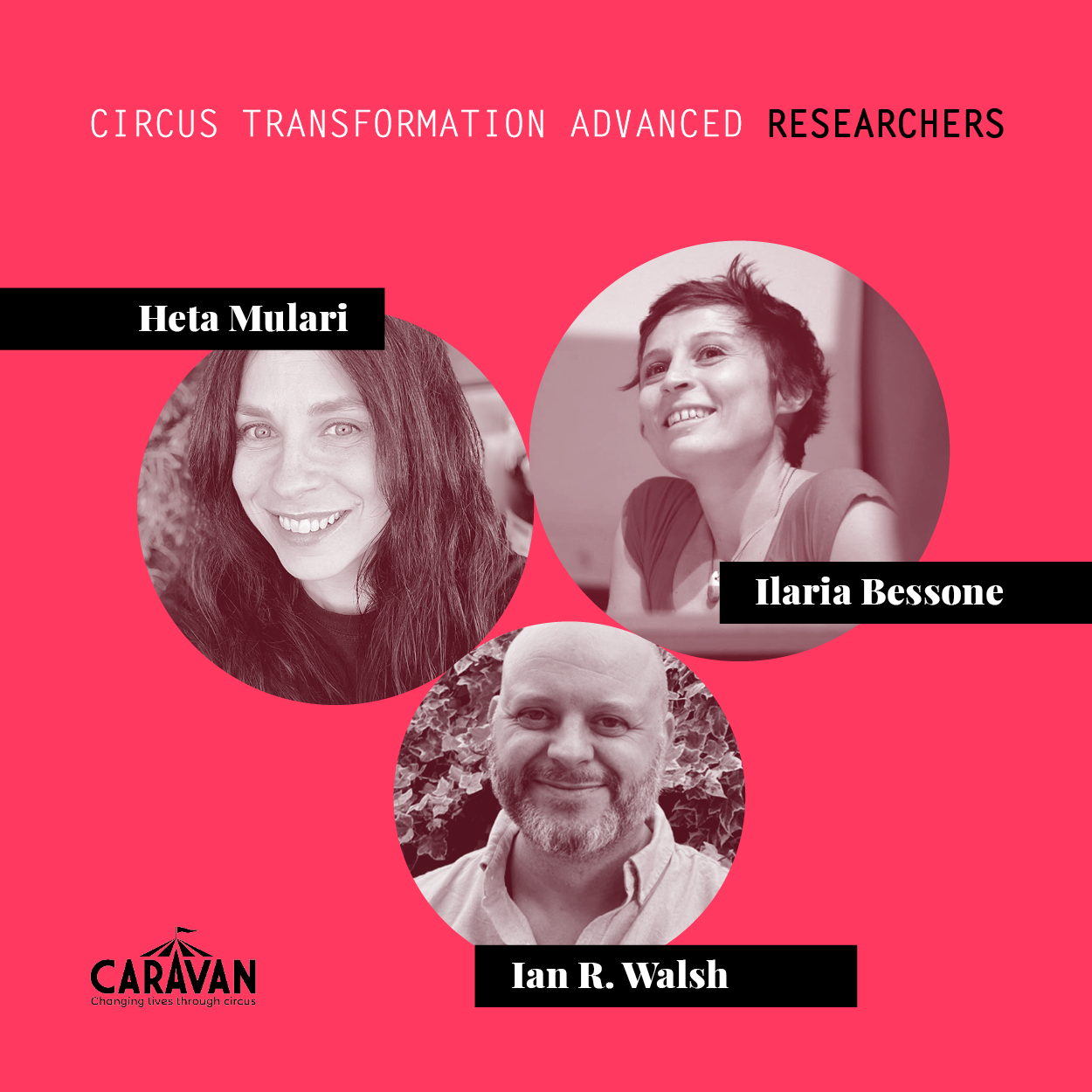
About the researchers:
Ilaria Bessone holds a PhD in Sociology and Methodology of Social Research (University of Milan), an MSc in International Migration and Social Cohesion (University of Amsterdam, Deusto and University College Dublin), and a master’s in development studies (University of Turin). In 2019-2022 Ilaria was one of the research coordinators of the project Circus as Intercultural Encounter, funded by Erasmus+, and in 2022-2024 she was involved in the evaluation research of CTF advanced (funded by Erasmus+). She is the research coordinator of AltroCirco, a circus teacher, a trainer of trainers, and has collaborated with different organisations and networks in Italy and abroad, including Caravan Circus Network.
Heta Mulari is a post-doctoral researcher based at the Unit of Social Research, Faculty of Social Sciences, Tampere University, Finland. Mulari’s research interests include youth and subculture studies, circus studies, urban studies, and feminist ethnography.
Ian R. Walsh is Lecturer in Drama and Theatre Studies at University of Galway. He has published widely in peer-reviewed journals and edited collections. From 2019-2022 Ian was the principal investigator for University of Galway on Circus ++ which developed the first Curriculum for an international BA in Youth and Social Circus (funded by Erasmus +). From 2019-2023 he was the principal evaluator in the monitoring and evaluation: Wires Crossed: Head, Heart, Balance (funded by Creative Europe) and (2023-24) he was part of the research team evaluating CTF Advanced (funded by Erasmus +). He is currently Chair of the Board of Directors of Galway Community Circus.
